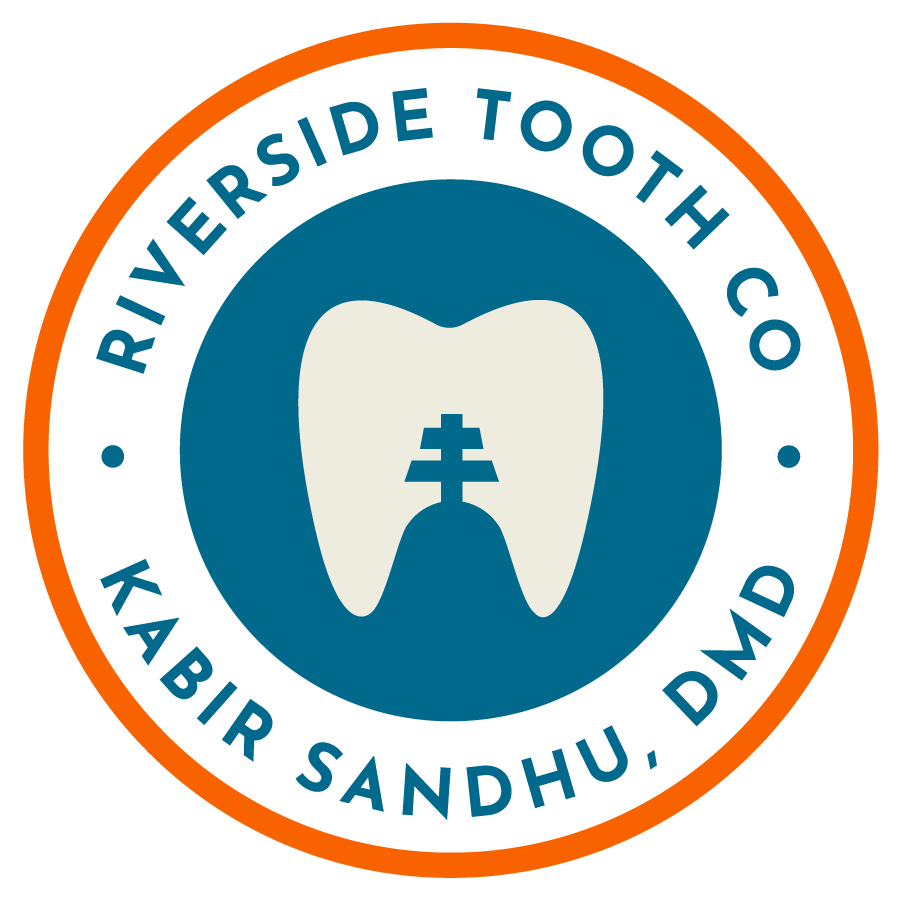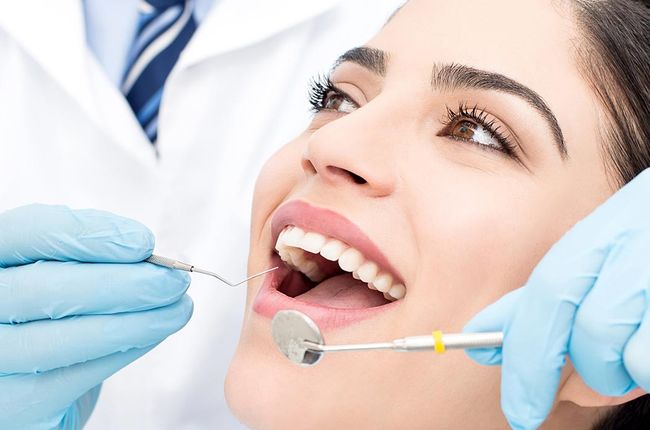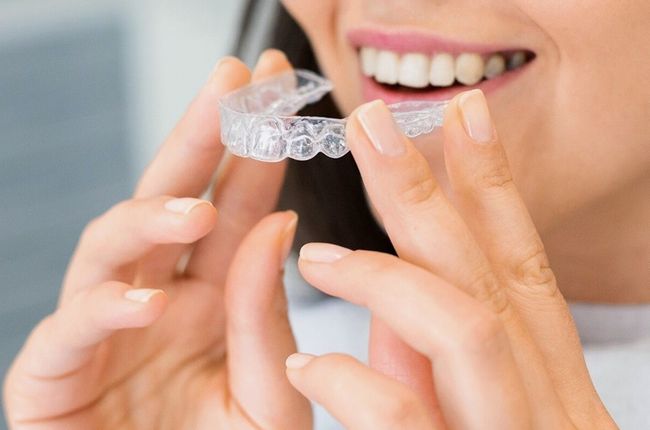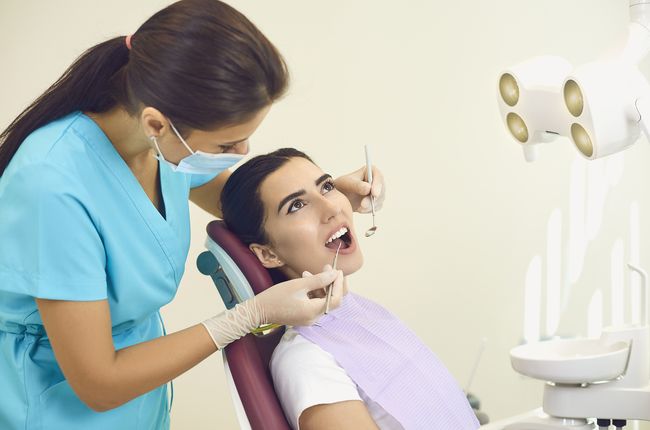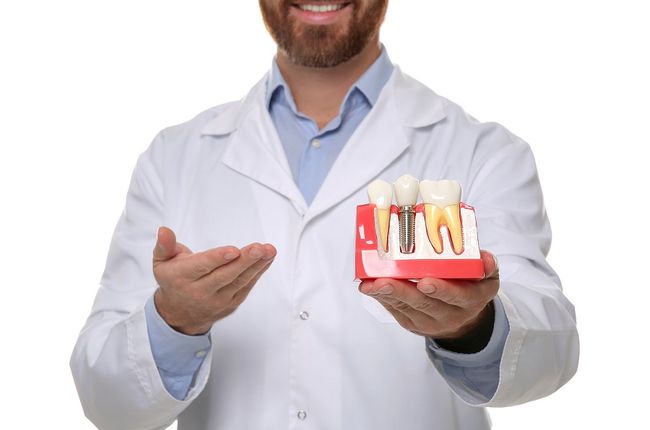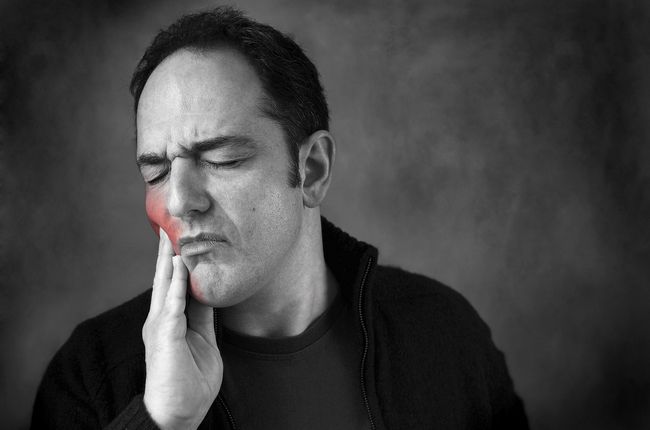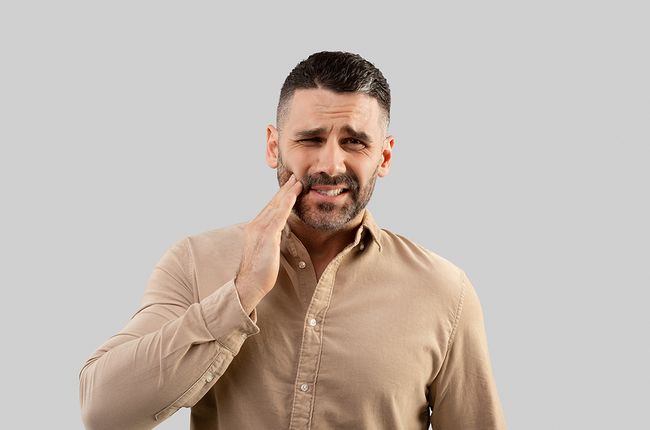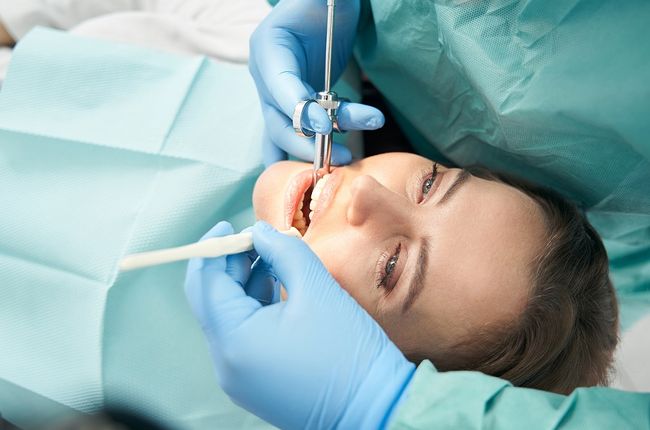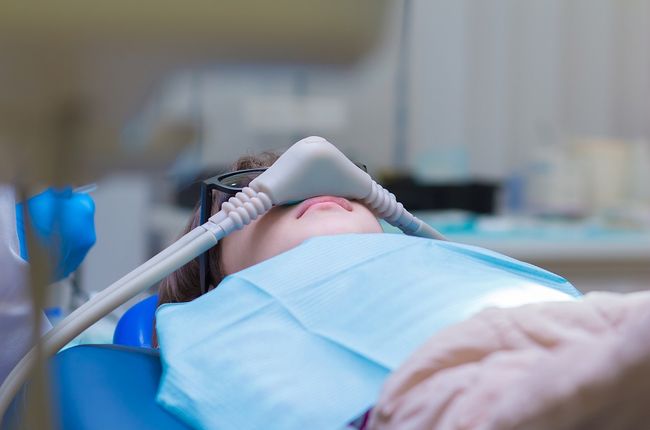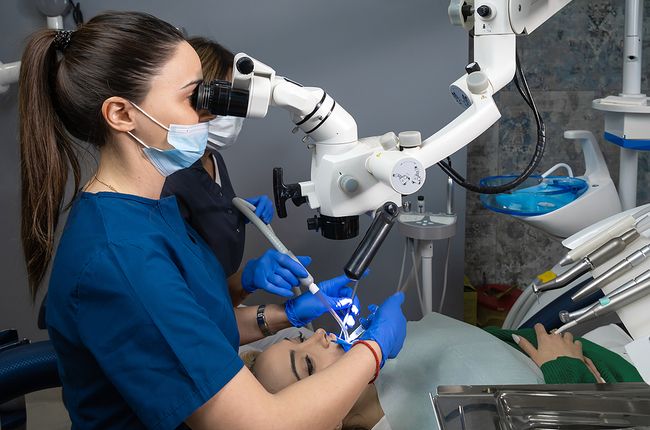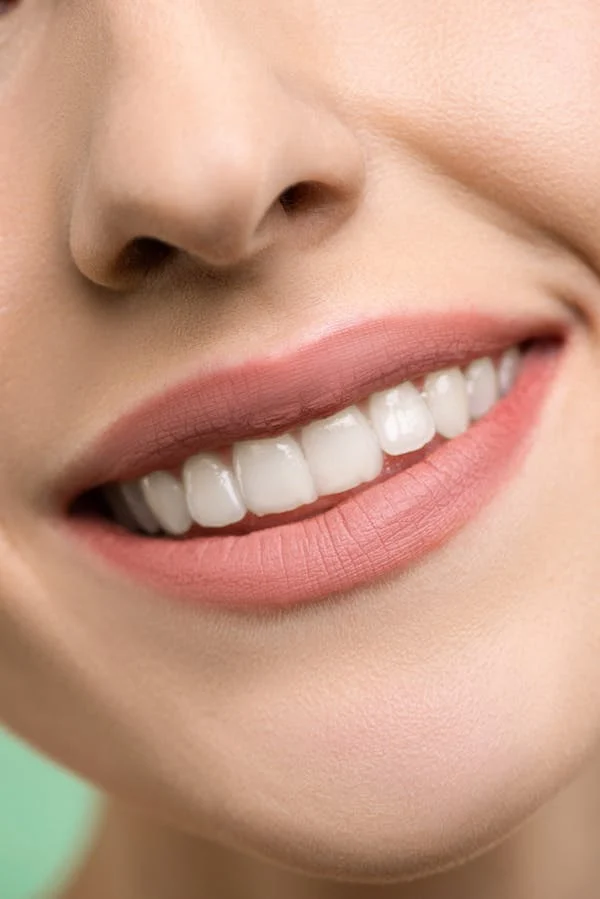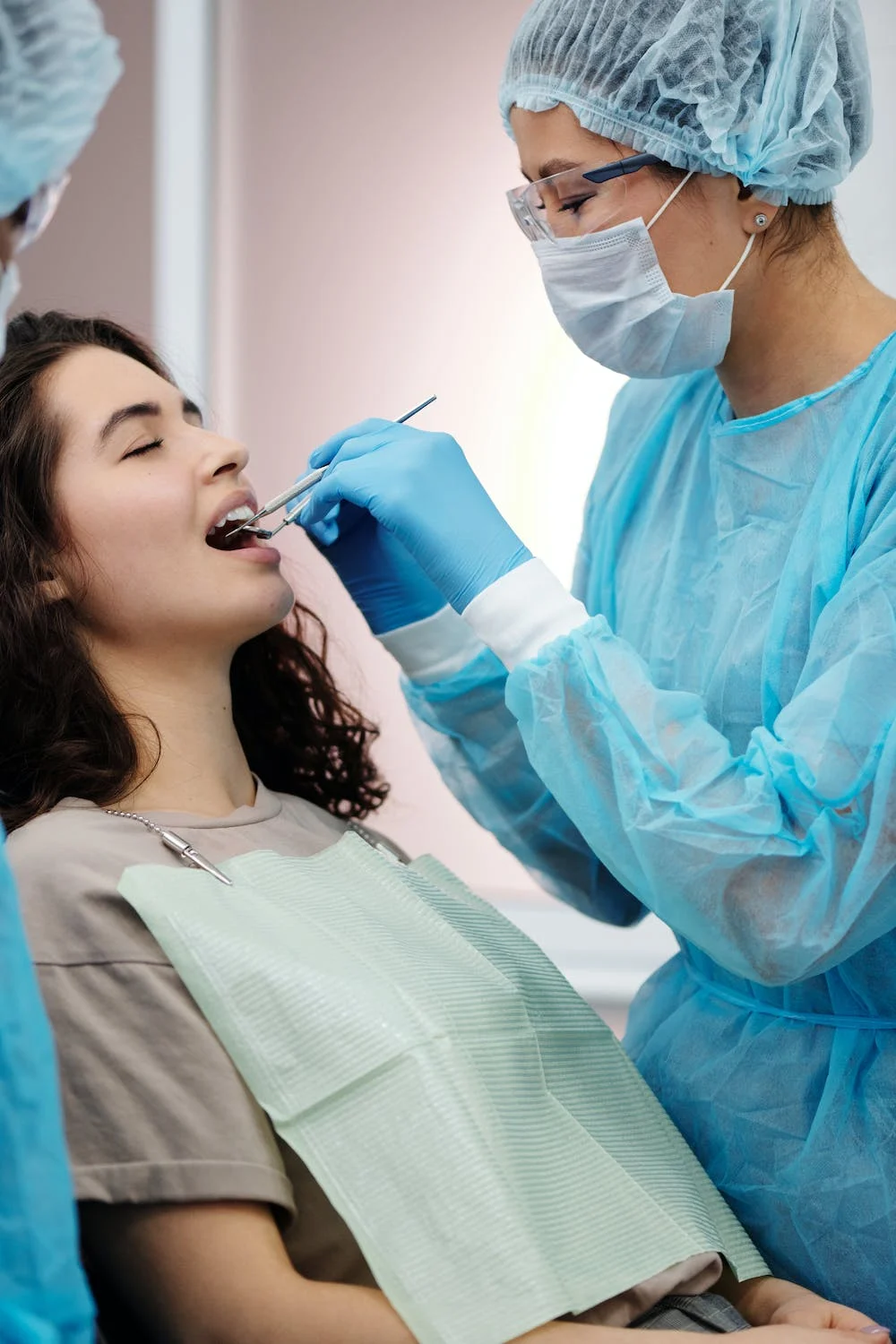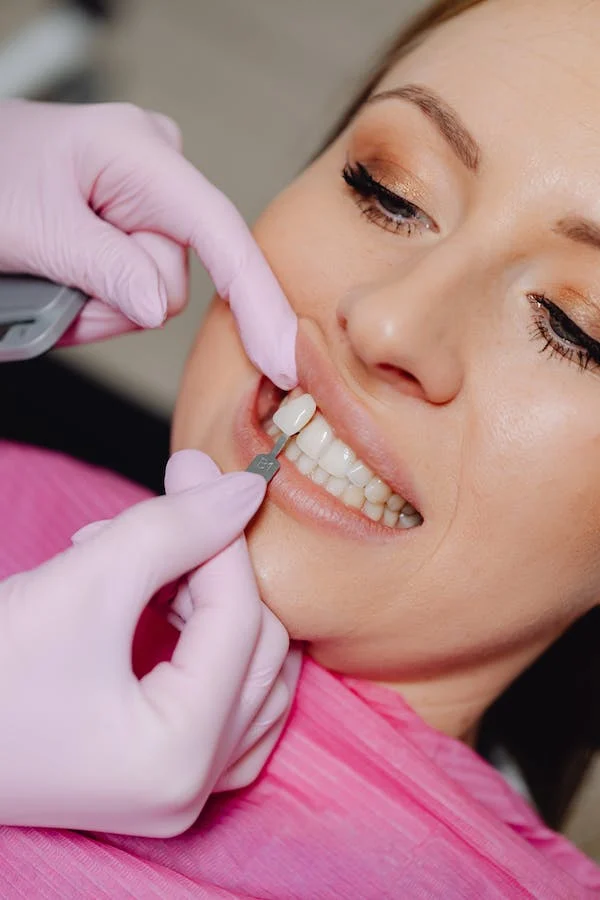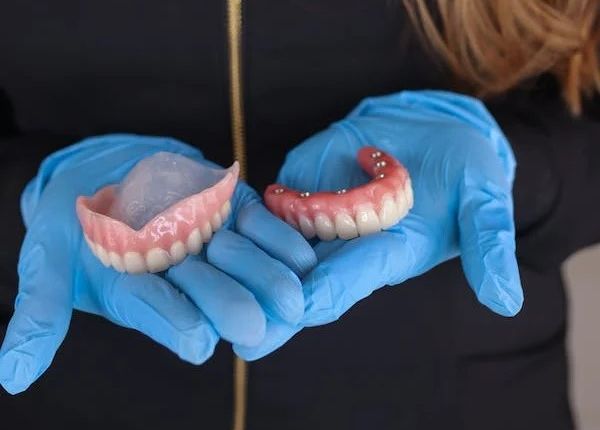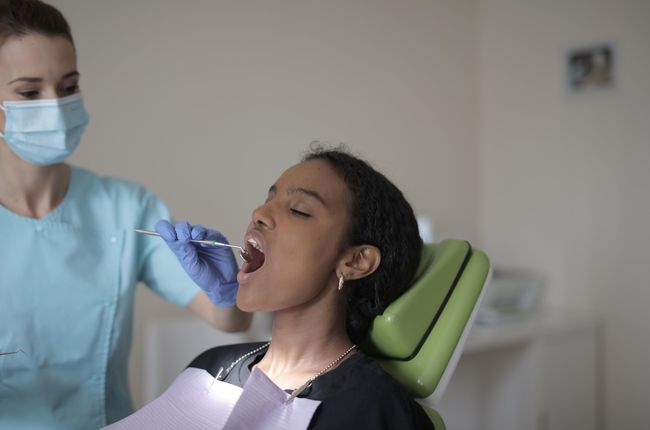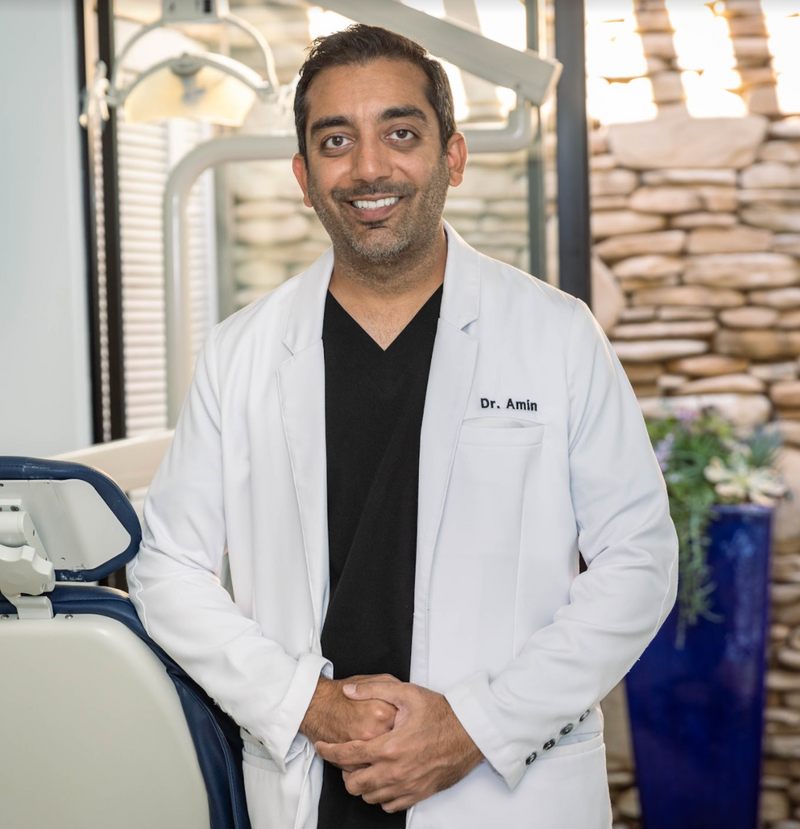Abscessed Tooth in Riverside, CA
An abscessed tooth is a dental condition that arises when a bacterial infection forms within the pulp of the tooth. The pulp, which consists of nerves, blood vessels, and connective tissue, can become infected due to various reasons, such as severe decay or trauma to the tooth. The infection leads to the formation of pus-filled pockets called abscesses. These pockets typically form at the root tip or along the gum line surrounding the affected tooth. If left untreated, an abscessed tooth can lead to serious complications such as bone loss and even systemic infections.
If you suspect that you have an abscessed tooth, it's important to seek prompt dental care. Your Dentist in Riverside, CA will conduct a thorough examination using X-rays to determine if there is indeed an abscess present. Treatment options for an abscessed tooth generally involve draining away the pus through root canal therapy or extracting the infected tooth altogether.
Causes of an Abscessed Tooth
An abscessed tooth can cause significant pain and discomfort. But what exactly causes this dental emergency? Let's take a closer look at the possible culprits.
- One of the main causes of an abscessed tooth is untreated tooth decay. When cavities are left unchecked, bacteria can penetrate deep into the tooth, causing infection to spread to the root or surrounding tissues. Poor oral hygiene practices also contribute to this problem as plaque buildup increases the risk of infection.
- Another common cause is gum disease. As gum tissue becomes inflamed and infected, it can create pockets where bacteria thrive and lead to an abscess forming in close proximity to a tooth.
- In some cases, trauma or injury to a tooth may result in an abscess developing over time. The force from impact can damage blood vessels and nerves within the tooth, making it susceptible to infection.
- Dental procedures such as fillings or crowns that don't fit properly can trap bacteria and irritate the pulp of a tooth. This irritation may eventually lead to an abscess if left unaddressed.
Understanding these potential causes is important for maintaining good oral health and preventing future complications related to an abscessed tooth. Regular dental check-ups, proper oral hygiene practices, and seeking prompt treatment for any signs or symptoms are crucial steps toward avoiding this painful condition. Stay tuned for our next section on recognizing the symptoms!
Symptoms and Signs of an Abscessed Tooth
- One of the most common indicators is persistent toothache, which may range from mild to severe. The pain often worsens when you bite down or apply pressure on the affected tooth.
- In addition to the throbbing pain, you might also experience swelling in your face or cheek near the infected tooth. This swelling occurs as a result of inflammation caused by the buildup of pus inside the abscess.
- Another noticeable symptom is sensitivity to hot or cold temperatures. You may find that consuming hot or cold foods and beverages triggers intense discomfort in your affected tooth.
- Bad breath and an unpleasant taste in your mouth are commonly associated with dental infections like abscessed teeth. The accumulation of bacteria within the abscess leads to foul-smelling breath and a constant bitter taste.
- If left untreated, an abscessed tooth can have systemic effects on your overall health. It can cause fever, fatigue, swollen lymph nodes, difficulty swallowing, and even spread infection to other parts of your body.
It's important to note that not all symptoms may be present at once for every individual with an abscessed tooth. If you notice any combination of these symptoms or suspect an infection, it's crucial to seek immediate dental care for proper diagnosis and treatment options.
Treatment Options for an Abscessed Tooth
When it comes to treating an abscessed tooth, there are several options available depending on the severity of the infection. One common approach is a dental procedure called root canal therapy. This involves removing the infected pulp from inside the tooth and cleaning out any bacteria or debris that may be causing the infection.
In cases where a root canal is not possible, another option is extracting the tooth altogether. While this may seem extreme, it can be necessary in order to prevent further spread of infection and alleviate pain. After extraction, your dentist will discuss options for replacing the missing tooth, such as a dental implant or bridge.
Antibiotics are often prescribed alongside other treatments to help eliminate any remaining infection and prevent its recurrence. It's important to take these medications exactly as directed by your dentist, even if you start feeling better before finishing the entire course.
In addition to professional treatment, there are also steps you can take at home to aid in healing an abscessed tooth. This includes practicing good oral hygiene by brushing twice daily with fluoride toothpaste and flossing regularly. Rinsing with warm salt water can also provide temporary relief by reducing inflammation and promoting healing.
Conclusion
If you suspect that you may have an abscessed tooth, it is crucial to seek immediate dental care. Your dentist will be able to diagnose the condition and recommend the appropriate treatment plan. Remember, early intervention can help prevent further damage and alleviate your pain.
Maintaining good oral hygiene practices such as regular brushing and flossing along with routine dental check-ups can also help in preventing dental issues like abscessed teeth.
Stay proactive about your oral health so that you can smile confidently knowing that you are taking proper care of your teeth! If you’re interested in learning more about how we can help improve your smile’s health and function, contact Riverside Tooth Co. at 6886 Indiana Ave Suite B, Riverside 92506, or call (951) 686-2565.
Contact Us
6886 Indiana Ave Suite B,
Riverside, CA, CA, 92506
Email: info@riversidetoothco.com
Phone: (951) 686-2565
Working Hours
MON8:00 am - 5:00 pm
TUE - THU9:00 am - 6:00 pm
FRI7:00 am - 12:00 pm
SAT - SUNClosed
